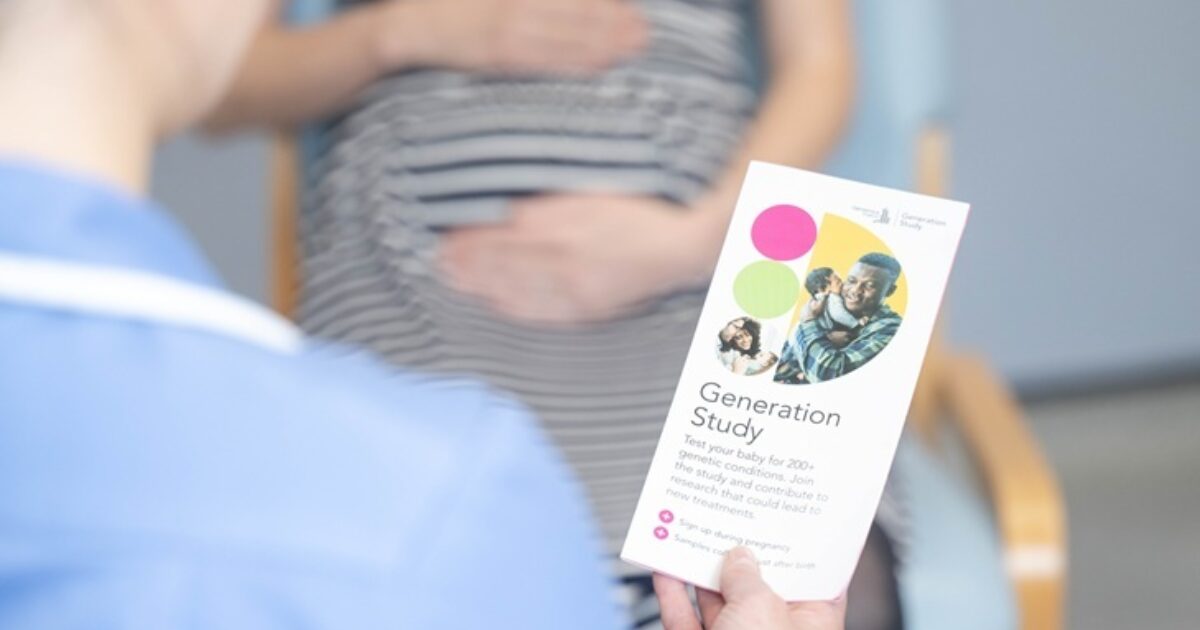
Genomics England’s Generation Study has now enrolled 25,000 babies – a major milestone in one of the world’s largest research studies of its kind to explore how whole genome sequencing could be used to screen newborns for rare genetic conditions. This landmark achievement brings us closer to understanding how genomics could help diagnose treatable rare conditions earlier, improve outcomes for families, and shape the future of care for people with genetic conditions.
The Generation Study, which is being run in partnership with the NHS, is a pioneering research study exploring how whole genome sequencing could be used to screen newborn babies for over 200 rare genetic conditions. These conditions typically appear in early childhood, and care can start early within the NHS if they are identified soon enough. By diagnosing these conditions sooner, the study aims to improve health outcomes and quality of life for affected children and their families.
The impact is already being felt. One participant, Freddie, was diagnosed with a rare and aggressive form of eye cancer – hereditary retinoblastoma – just weeks after birth, thanks to his genome being sequenced through the study. With no family history and no symptoms, the condition would likely have gone undetected until much later. Instead, Freddie was able to begin treatment immediately, giving doctors the best chance to minimise the impact on his vision.
The study also supports discovery research by securely storing each baby’s genome and health information for approved research, without revealing identities. This will help scientists better understand the causes of genetic conditions and improve how we test for and treat them in future.
Recruitment is accelerating, with more than 50 NHS hospital sites actively enrolling families. This growing network is helping ensure the study reaches families from all corners of England.
The Generation Study is part of the government’s ambition, set out in the 10-Year Health Plan, to explore whether whole genome sequencing should be offered to all babies at birth. The evidence gathered will inform future policy decisions on universal genomic newborn screening.
Participation in the study is voluntary, and families can withdraw at any time. Babies will be re-consented around the age of 16, reflecting Genomics England’s commitment to ongoing, informed consent.
To find out more about the study visit – www.generationstudy.co.uk

